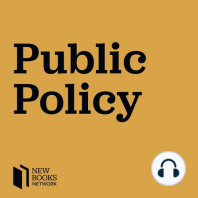64 min listen
Unavailable

Currently unavailable
Diana Hess and Paula McAvoy, “The Political Classroom: Evidence and Ethics in Democratic Education” (Routledge, 2014)
Currently unavailable
Diana Hess and Paula McAvoy, “The Political Classroom: Evidence and Ethics in Democratic Education” (Routledge, 2014)
ratings:
Length:
46 minutes
Released:
Feb 23, 2015
Format:
Podcast episode
Description
Contemporary American political culture is arguably more divisive than ever before. Blue states are bluer, red states are redder, and purple states are becoming harder and harder to find. Because of this divisiveness, teaching social studies and civics education has now become an overwhelmingly difficult task. Should a teacher share political leanings? How can teachers ensure that students are learning a wide political spectrum? Diana Hess and Paula McAvoy set out to answer these questions and more in The Political Classroom: Evidence and Ethics in Democratic Education (Routledge 2014), from the Critical Social Thought series. The researchers undertook a massive years-long longitudinal study of high schools in Illinois, Indiana, and Wisconsin. From different classroom styles and teacher pedagogy, to impact on students, The Political Classroom offers an in-depth glimpse into the American civics education classroom.
Dr. Hess joins New Books in Education for the interview and you can find more helpful resources on social students and civics education at thepoliticalclassroom.com. For questions or comments on the podcast, you can also find the host on Twitter at @PoliticsAndEd.Learn more about your ad choices. Visit megaphone.fm/adchoices
Dr. Hess joins New Books in Education for the interview and you can find more helpful resources on social students and civics education at thepoliticalclassroom.com. For questions or comments on the podcast, you can also find the host on Twitter at @PoliticsAndEd.Learn more about your ad choices. Visit megaphone.fm/adchoices
Released:
Feb 23, 2015
Format:
Podcast episode
Titles in the series (100)
Robert N. Gross, “Public vs. Private: The Early History of School Choice in America” (Oxford UP, 2018): There are numerous political debates about education policy today, but some of the most heated surround vouchers, charter schools, and other questions about public funding and oversight of private schools. Though many of these questions feel new, by New Books in Public Policy